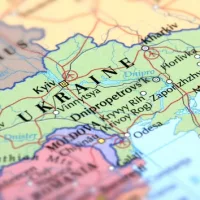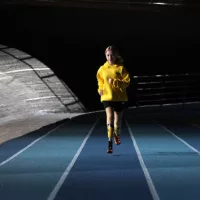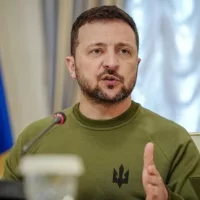
yorkfoto/iStockBy PATRICK REEVELL, ABC News
(MINSK, Belarus) — Protests calling for Belarus’ leader Alexander Lukashenko to step down took place again in the capital Minsk on Wednesday, but for the first time in a week riot police reappeared on the streets as authorities seemed to take steps to regain momentum against the protests.
The hundreds of protesters calling for an end to Lukashenko’s 26-year rule sought to gather outside the Interior Ministry in central Minsk, but were met by a large number of riot police deployed to block them.
It came on the same day as Lukashenko ordered police to clear the streets, though in the end, police did not move against protesters, instead just blocking their path to the ministry.
“There should no longer be any disorder in Minsk of any kind,” Lukashenko said in a meeting with senior officials, as reported by state news agency Belta. “People are tired. People demand peace and quiet.”
The demonstrations went ahead despite the threat of a crackdown, moving instead to Minsk’s central Independence Square. But it was the first day that there was a significant police presence since last week and the historic protests over the weekend that saw an estimated over 100,000 people take to the streets. Since those protests, police had all but vanished from the streets.
The protests have sought to keep the pressure up on Lukashenko. But after the euphoria of the vast crowds of Sunday, by Wednesday an unease and a sense of fragility had appeared among some protesters, aware Lukashenko’s grip on power has not been broken and mass defections of security forces or government workers have so far not materialized.
The authorities appeared to have recovered some of their footing. In the morning, police dispersed protesters outside a Minsk factory where they have been encouraging a strike, arresting some, though they did not use the extreme violence that was seen at the start of the protests.
The announcement of a wave of strikes at some of Belarus’ largest manufacturing plants last week produced some of the momentum to the protests that culminated in Sunday’s massive demonstrations in Minsk, viewed as a signal that the workers long considered Lukashenko’s base were also turning on him.
But in the past few days, authorities and management at the factories have turned up the pressure on workers and by midweek the strikes appeared to be struggling.
A walkout by workers from the Minsk Tractor Factory last week was taken as a sign of the protests’ ballooning support. But on Tuesday when ABC News reporters visited the factory — a vast complex with 16,000 staff — workers supportive of the protest said the numbers willing to strike had shrunk dramatically.
Workers said they were unsure how many people were striking in the factory, but that it had fallen from around 10,000 on the first day to far less — perhaps less than 2,000.
A 38-year-old woman who worked at a stamping press wept as she said she couldn’t strike because she had been threatened with firing.
“I have two children,” she said, saying she preferred not to give her name because of the risk of reprisal. “People are afraid.”
A crowd of protesters wearing red and white energetically cheered on workers as they emerged from their shift. Some of the workers flashed the V-sign that has become a symbol of the protests. But most stared passively straight ahead, while a small number angrily grabbed the flyers demonstrators held out and tore them up.
Yulia, a young employee at the Minsk Truck Factory, struggled to hold back tears as she said there were now only a few hundred workers striking.
“On Friday there was a lot more, and yesterday there was a lot more,” said Yulia, 26, who asked ABC News not to use her last name. “It’s very small. We wanted better, but I don’t think our government will change.”
A number of workers said they thought the lack of clear leaders for the protests was stopping many from joining them.
The movement against Lukashenko had lined up behind an opposition candidate in the election, Svetlana Tikhanovskaya. Tikhanovskaya, who was a stay-at-home mother until a few months ago, ran against Lukashenko after her husband, a popular blogger, was jailed and prevented from being a candidate.
Although she has attracted a huge backing, many people said they see her as essentially a figurehead and she is currently not in Belarus, having left for neighboring Lithuania last week under threat from authorities.
Tikhanovskaya’s campaign has formed a “coordination council” meant to hold negotiations with Lukashenko on a handover of power. The council, which includes the Nobel Prize laureate Svetlana Alexievich, held its first session on Wednesday and published a resolution calling for the government to cease violence, release political prisoners and hold new free and fair elections.
Lukashenko, though, again denounced the opposition as part of a foreign attempt to overthrow him and on Wednesday, he made a series of orders telling the security forces and the military to guard against unrest.
It was still very hard to see whether the opposition or the authorities would gain the upper hand, many observers said.
“A lot depends on how many plants heed the call to the national strike,” Alexander Starikevich, a commentator, wrote in an op-ed on the Russian website, VTimes. “For now the coin is hanging in the air: whether the walk-out grow to a critical mass, will become clear within a week.”
Copyright © 2020, ABC Audio. All rights reserved.















